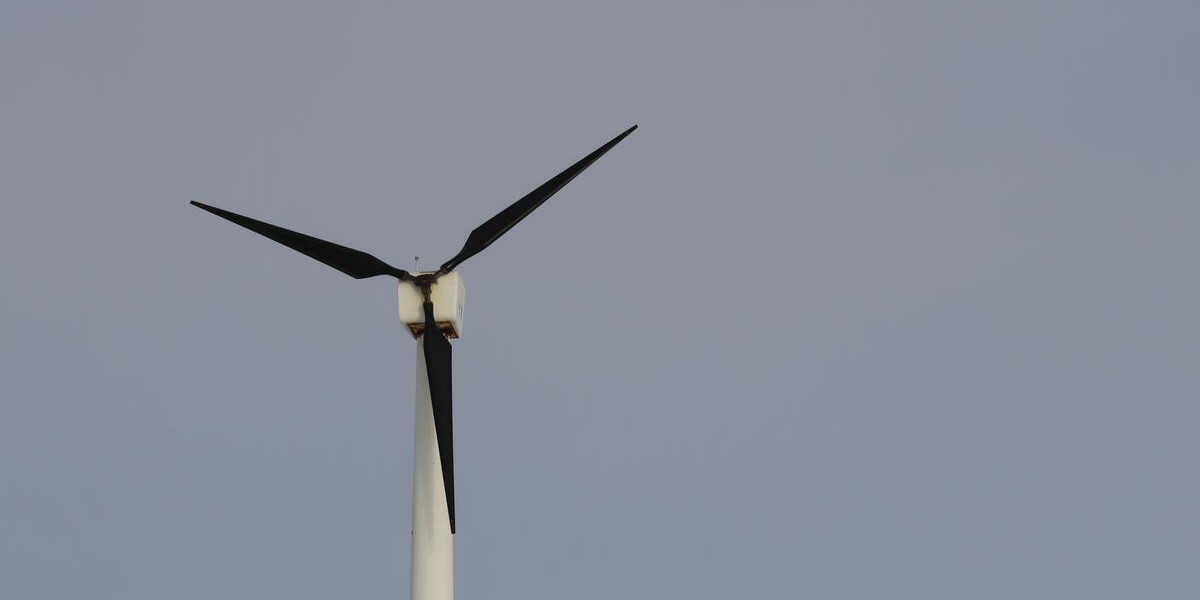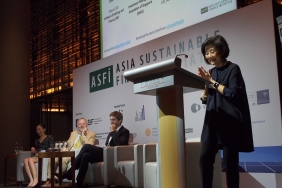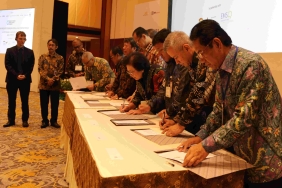COP 17 DURBAN: NATIONAL INTEREST VERSUS GLOBAL INTEREST
By: Iwan Setiawan
On November 28-December 9, 2011, the 17th Conference of Parties (COP) - an annual international event to discuss climate change - will take place in Durban, South Africa. What stance will world leaders take in the face of rising temperatures that are making the earth hotter?"
Nyoman Iswarayoga, Director of WWF Indonesia's Climate and Energy Program, in a discussion with the media on Tuesday (22/11) at Bakoel Coffie, Cikini, explained that the negotiations in Durban can only be achieved if all leaders of developed countries agree to hasten progressive efforts to reduce carbon emissions and implement the agreed commitments.
But it seems that hope is not simple. The United States government is still refusing to set a target for reducing carbon emissions. The Durban meeting is the last chance to provide certainty for the future of climate change. The commitments made under the Kyoto Protocol will expire in 2012.
On the other hand, EU countries are willing to continue their commitments if developed countries such as Japan, Russia and Canada join them. Equally, developed countries will only join if developing countries are determined to reduce their emissions. This situation then makes WWF call the negotiations in Durban like being at a crossroads.
In addition to the issue of international commitments to reduce greenhouse gas (GHG) emissions, another issue that will be of concern in Durban is REDD+ (Reducing Emissions from Deforestation and Forest Degradation). In addition to deforestation and forest degradation being the largest source of emissions, accounting for 20% of global emissions, the discussion of REDD+ is also increasingly important because there are still many agreements on this matter that are still hanging in the previous COP in Cancun, Mexico, last November 2010.
REDD is a scheme to provide incentives for countries that succeed in reducing carbon emissions by reducing the rate of deforestation and forest degradation. These incentives can encourage more sustainable forest management by providing a sustainable revenue stream. Reduced emissions or 'avoided deforestation' can be counted as carbon credits. The credits could then be submitted to a funding agency set up to provide financial compensation to participating countries that protect their forests.
WWF-Indonesia proposes to increase financing from developed countries by US$10 billion each year, starting with US$20 billion in 2013 to reach US$100 billion by 2020, as agreed by developed countries at COP 15 in Copenhagen, Denmark two years ago.
This issue is also important for Indonesia, because Indonesia's forests cover 71% of the land area. In response to REDD+, Nyoman Iswarayoga emphasized the importance of measurable mechanisms, periodic reporting, and clear verification. Thus Indonesia can take maximum benefits from the program.
Meanwhile, WWF-Indonesia Forest and Climate Policy Coordinator Iwan Wibisono reminded the need for thorough preparation internally. ""At the national level, we must prepare REDD+ governance infrastructure, establish a National Strategy, as well as improve institutions to reduce uncertainty,"" he said.
The implementation of pilot activities, he added, also needs to be encouraged before Indonesia enters the full implementation stage of REDD+. Currently, of the nine proposed pilot provinces (Pilot Province), only one is running, namely Central Kalimantan Province. "REDD+ is not about projects that bring in money, but about how to get to better forest governance," Iwan said, ending the discussion.
Climate change is a common problem that should be addressed and shouldered together. Thinking only about one-sided benefits will only damage the earth, which in turn affects the entire global life system.




